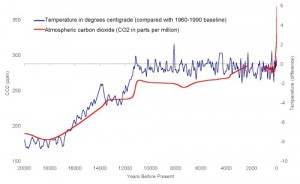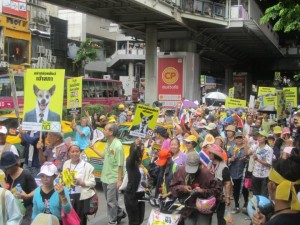Writing for that right-wing blog The Australian Caroline Overington refers to On Line Opinion as a “lefty blog”:
THE campaign by those affiliated with the ABC to prevent SkyNews from winning the $220 million licence to run Australia Network continues. This week’s contribution comes from one Tania Penovic, who has written an essay for the lefty blog Online Opinion entitled: “Sky should now withdraw its Australia Network tender”. Why? Because, Penovic says, “News (Corporation) has demonstrated a willingness in the past to exploit business opportunities by compromising broadcasting.” For the umpteenth time, SkyNews is not owned by News Corporation. Sky is two-thirds owned by Seven and Nine. News has got a third of the final third. But who is Penovic, anyway? She’s an academic, of course, and she’s a member of the ABC Advisory Council, appointments to which are made by … yes, the ABC Board.
A bit more research might have been in order, although given that we have been in existence for 12 years and I write regularly for The Australian with On Line Opinion in my byline, you would have thought Caroline might have a better idea of the provenance of OLO.
First, we’re not a blog, at least no more than The Australian is a blog. The 12,337 articles that we have published are not “blog” posts, and their 3,910 authors are a who’s who of Australian politics and commentary, and include every prime minister since we started publishing.
Second, we are a modernist and enlightenment project. We apply the scientific method to debate, seeking to publish thesis and antithesis on as many issues as we can. Of course, like most publications we find that those on the left are more prolific writers than those on the right, so we tend to get more contributions from that direction.
As a former state Vice-President and Campaign Chairman of the Queensland Liberal Party I am frequently accused of bias, and in truth, while I think the editing is even-handed, I would expect that exposed to both sides of the spectrum my side of the argument will actually do best.
Certainly our open publishing stance has antagonised many on the left, such as Clive Hamilton, who believes we should be boycotted because of our commitment to exploring the flaws in scientific arguments on climate change. There is some evidence that his boycott has had some success.
Of more success is the boycott late last year of our site by some advertisers because we dared to carry this article criticising gay marriage and the motives of those pushing for it. This was because, despite the fact that we had carried three times as many articles supporting gay marriage as opposing it, gay activists, including this man, Gregory Storer, decided there was only one point of view we could carry. Not only was this action very probably illegal (but who has the budget to find out), but it deprived us of tens and thousands of dollars in advertising dollars, and was the first real experience that I have had of brown-shirt activism.
At the time The Australian’s columnist Christopher Pearson sprang to our defence calling us “a well-regarded e-journal” (have a word to Caroline Christopher). The Australian Christian Lobby and Jim Wallace also prosecuted our case.
The Penovic article is a case in point of how we operate. I actually found it on the blog of the Castan Centre and asked if we could republish it. Pieces like this by a member of the ABC Advisory Board do not deserve to languish on a university blog site.
I don’t personally agree with it, but that is not the test as to whether something gets published.
In fact my position on the News brouhaha is that it is being hysterically fanned by those who have a vested interest in nobbling Newscorp. And virtually all of those who are capable of publishing articles on the Newscorp problems are either Newscorp itself, or commercial rivals, while those who write them mostly work for News or her competitors. We’re all compromised, I as much as others, although I do manage to walk both sides of the fence.
The Greens and the Labor Party are a different case, with the Greens’ policy containing a disguised intention to nobble News under the guise of competition policy. (For the Greens’ attitude to free speech see Clive Hamilton above). These are organisations who would be lauding Murdoch if he agreed with them, but want to flay him because he doesn’t, as in a post- and pre-enlightenment view of the world this is evidence of bias.
(In the case of the British Labour Party it is even more complicated. They never complained about Rupert when he supported them.)
So is On Line Opinion a “lefty blog”? I don’t think so, but in the best traditions of the Internet, and the Enlightenment, why don’t you tell me in the discussion thread below?



